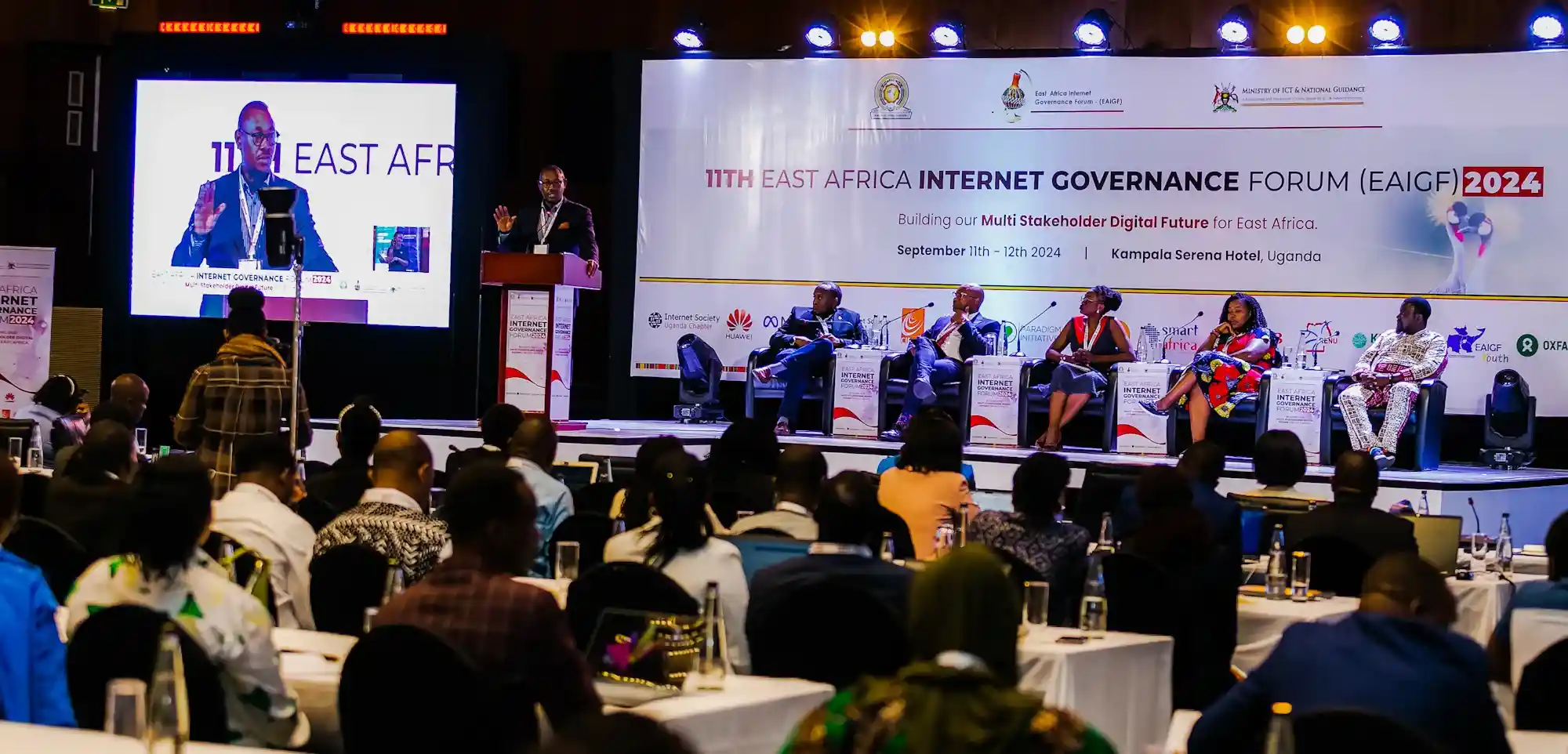East African states should invest in building and upgrading digital infrastructure to create a thriving digital future that benefits all its citizens.
Investments should be prioritized in broadband networks and data centres to ensure access and connectivity.
This call to action was made by a High-Level Panel: “Building our Multistakeholder Digital Future for East Africa,” at the 11th edition of the East African Internet Governance (EAIGF) 2024 held in Kampala, Uganda.
Panellists: Gbenga Sesan, Executive Director, Paradigm Initiative, Shirley Gladys Nakyejwe, Senior ICT Officer & Intellectual Property Management Specialist, Ministry of ICT & National Guidance – Uganda, Dr Bello Moussa, Head of Innovations & ICT Strategies, Huawei Southern Africa, Eng. Daniel Murenzi Principal Information Technology Officer, East Africa Community and Mercy Ndegwa, Public Policy Director, East & Horn of Africa at Meta explored approaches to building a digital future for East Africa, focusing on leveraging digital technology to drive economic growth, enhance digital governance, and improve quality of life.
They noted that collaborative efforts are essential to align policies and regulations related to digital trade, e-commerce, and data protection across the region.
“The only thing is collaboration. Collaboration, how to collaborate. Transformation is not a one-man show,” says Dr. Bello Moussa.
According to Mercy Ndegwa, efforts being undertaken in East Africa to integrate and harmonize policies and regulatory frameworks are crucial for addressing the challenges faced in the digital landscape.
“By ensuring a consistent and coherent approach, these initiatives can facilitate cross-border digital interactions, making it easier for individuals and businesses to operate across the region.”
If achieved, harmonization can create a more conducive environment for innovation by reducing regulatory burdens and promoting a level playing field for digital platforms says Mercy.
In addition, states need to have robust cybersecurity measures and international cooperation is crucial to combat cyber threats and protect sensitive data.
A thriving digital ecosystem in the region also means governments and organisations investing in digital literacy programs to equip citizens with the skills necessary to navigate and benefit from the digital world.
“We want to bridge that digital gap and bring all partners in one place to contribute to this vision that we want to achieve,” Ms Shirley Gladys Nakyejwe emphasised adding that:
“So if it’s connectivity that is going to enable us to bridge that gap, let us work together to, you know, provide the infrastructure. If it is a lack of skills, can we, bring resources together and provide the skills? If it is a security, can we strengthen our cyber security? If it’s innovation, can we support our innovators?
States also need to foster innovation by creating a conducive environment for innovation and entrepreneurship which is vital for driving economic growth and creating new opportunities in the digital sector.
“Digital Futures are about policies, people, and practices, policies. We need to focus a lot more on the people. Connect more people, get more people open up to opportunities,” says Gbenga.
“Our practices must be one of working together, one of taking action and not repeating the same point. Presentations and phrases and conferences, we have no business talking too much. Let’s get the job done.”
The primary objective of the EAIGF is to create an inclusive, multilingual platform for discussing critical issues related to Internet development and governance in East Africa.
Since its inception in 2008, the EAIGF has fostered a multi-stakeholder approach, bringing together representatives from diverse sectors to shape the future of the Internet in the region.
The EAIGF plays a crucial role in promoting awareness, building policy capacity, and enabling meaningful participation in global Internet policy and governance.
Discussions from regional forums like the EAIGF contribute to the Continental Internet Governance Forum, ultimately aiming to realize the multi-stakeholder model at both the continental and global levels.
The EAIGF’s bottom-up approach begins at the National IGFs, which serve as building blocks for the regional forum. This inclusive model ensures that diverse perspectives are represented and considered in shaping Internet policies and practices in East Africa.
![]()




